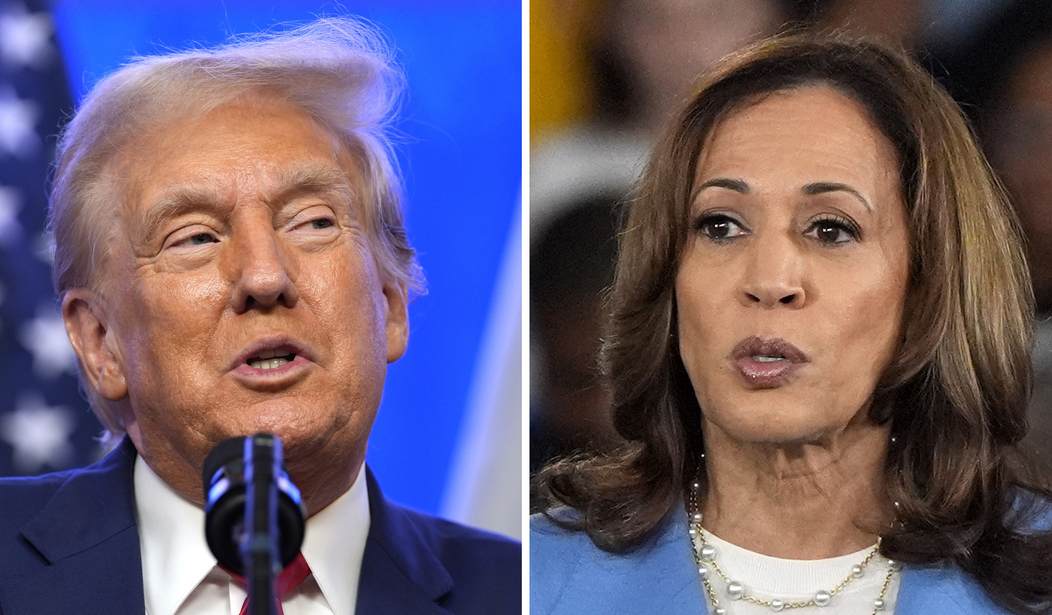What is the most important issue in this election? Asking the voters, Gallup found that "the economy" was number one at 44%. But just 3% of voters thought that the budget deficit/federal debt was the most important economic issue.
More people believe that abortion is a more important issue (4%) than the deficit. More people believe gun control (5%) is more important than the federal deficit.
Even conservatives, who are supposed to be in favor of competent stewardship of the public purse, are instead racing just as fast as the left to spend as many federal dollars as can possibly be spent. And that's the biggest reason few on the right truly care about such things as the deficit and the debt.
Every two or four years, the right gets up on its hind legs and barks out the obligatory warning about spending too much — except you better not cut defense spending, or mess with our tax cuts, or raise taxes on anything or anyone, or do anything else that would take away from programs that benefit red state citizens.
This election cycle, even fewer conservatives are calling out the government for their record-breaking profligacy. That's because they know that the man they support for president doesn't give a damn about deficits either. And that's trouble for the future.
The left doesn't care either. And if Harris is elected, she will spend even more than Trump and try to raise taxes to boot. Not an ideal situation.
The $1.8 trillion budget deficit the government ran in FY 2023 was only $169 billion more than the $1.7 trillion budget deficit the government ran in 2022. The problem is that revenues increased 11% in FY 2024. How come the deficit was up? Spending increased by 12%.
Federal tax collections climbed from $4.4 trillion to $4.9 trillion in FY2023. Meanwhile, the federal government spent $6.75 trillion last year. This is obviously not a tax problem if revenue is up 11% from the previous year. This is a spending problem.
More specifically, it's a borrowing problem. While spending increased by about 10 percent from the year before, the interest payments on the national debt ballooned by 34 percent—from $710 billion to $950 billion. That sharp increase reflects both the size of the national debt, which is now roughly as large as the nation's annual economic output for the first time since World War II, and the rising interest rates that have been a feature of the economy for the past few years.
"By 2034, the CBO estimates that the federal government will spend more than $1.6 trillion on interest payments," writes Reason's Eric Boehm.
Interest on the debt is now the second largest expenditure made by the federal government behind only Social Security which costs $1.5 trillion. Interest on the debt now surpasses defense spending of $826 billion and Medicare spending of $869 billion.
Even if interest rates come back to near zero, the increases in the debt are baked in.
Both Harris and Trump are promising more of the same.
Instead, both Vice President Kamala Harris and former President Donald Trump have been eager to pitch ideas that will widen the deficit and pile on additional debt. According to an analysis by the Penn Wharton Budget Model, a fiscal policy think tank at the University of Pennsylvania, Trump's proposals would add $5.8 trillion to the deficit over the next decade. Harris, meanwhile, would add an estimated $2 trillion in larger deficits over the next decade, thanks to a combination of higher government spending and lower economic growth (a result of her plan to hike taxes).
The only reason Harris's plan will add less to the federal deficit is because she plans to jack taxes by about 20%. Trump has offered no substantive plan about how to reduce deficits while cutting taxes.
It should be a very interesting plan if he publishes it.
The increased spending by both candidates would give a boost to the economy. No one doubts that. The problem is that eventually, the piper is going to have to be paid.
And when the bills start to come due, it's going to get very ugly, very fast.










